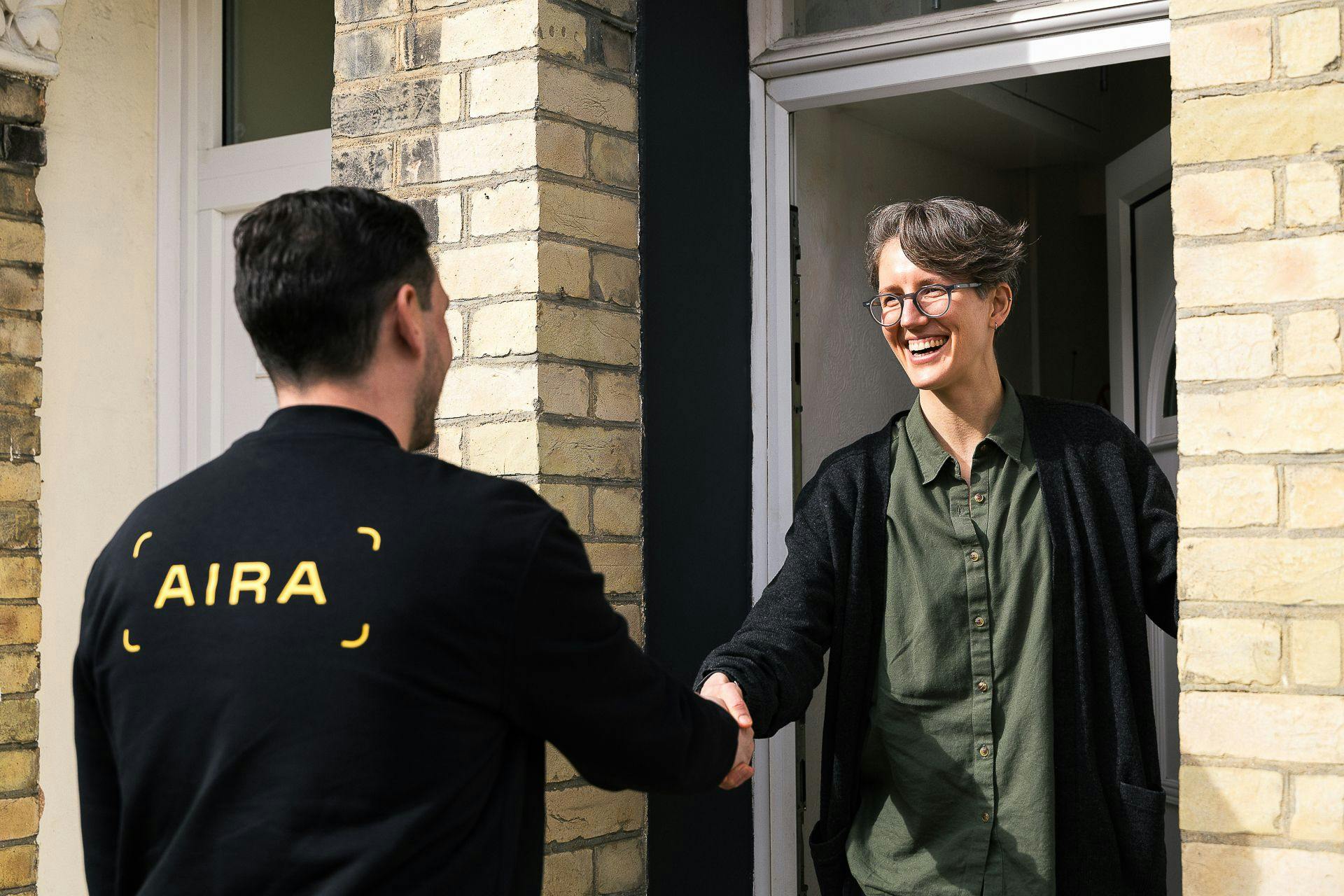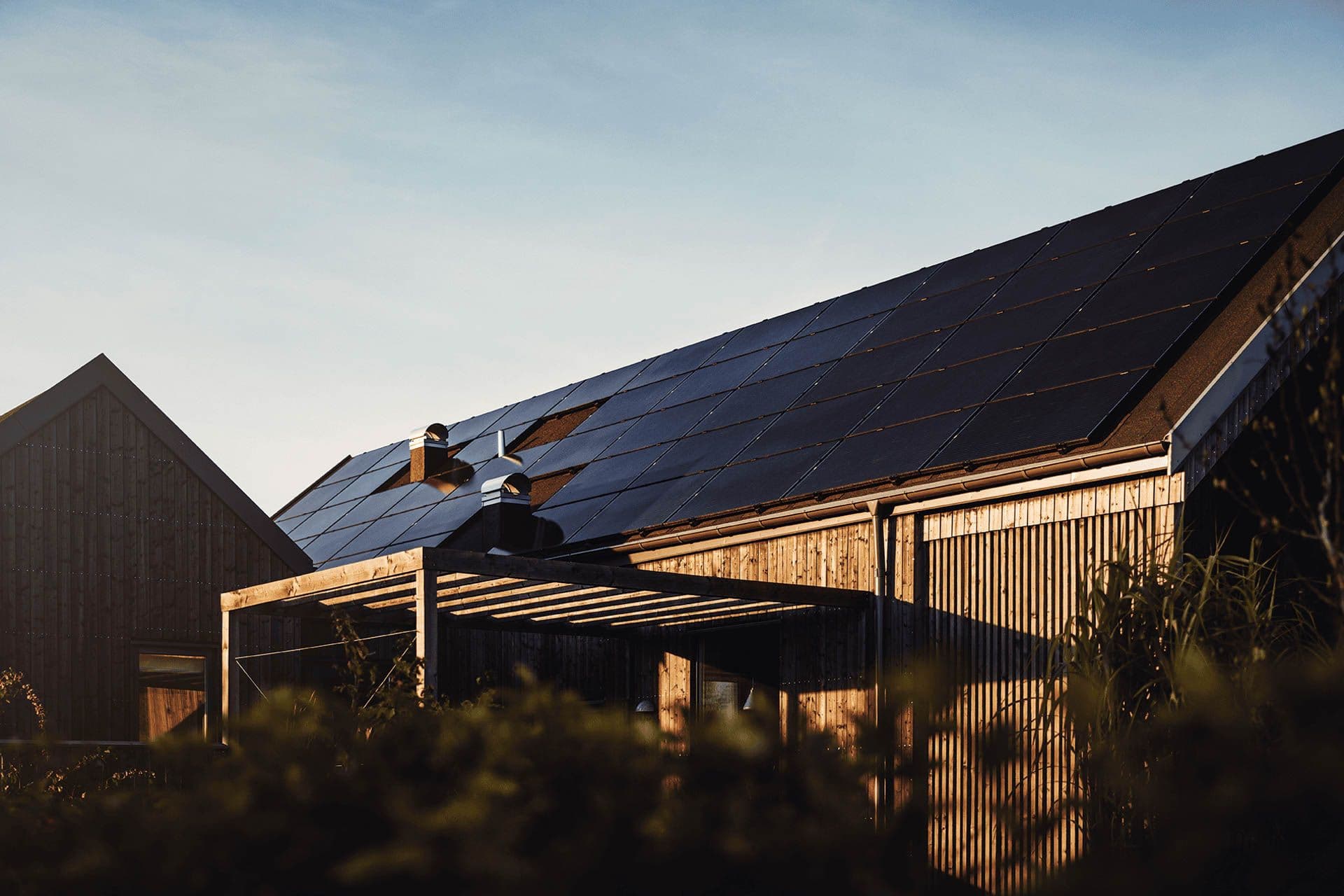19 June 2025
8 minute read
Written by:

Carl Robinson
Content Manager
Heat pump efficiency explained: Everything you need to know before you switch

Key takeaways
- Heat pumps use smart tech to deliver 3-4 times more heat for every bit of electricity you use. That means lower bills and a smaller carbon footprint.
- COP and SCOP numbers aren’t just tech talk, they show how well your heat pump will keep you cosy and save you money. COP gives you a snapshot of efficiency, while SCOP gives a seasonal average that helps predict year-round savings and performance.
- Getting your heat pump installed right, with good insulation and the right setup, makes all the difference. Plus, adding solar panels means even bigger savings and greener heating.
Thinking about ditching your gas boiler? You’ve probably heard that heat pumps are more energy efficient. And better for the planet. But what does that really mean day-to-day? And how do you know if those efficiency stats like COP and SCOP will actually translate into lower bills and reliable heating in your home?
Let’s break it down. No jargon, just the stuff that matters.
What does “efficiency” mean for heat pumps?
Heat pump efficiency isn’t just about lower energy bills (though that’s a major benefit). It’s about how well your system turns electricity into heat energy. And, unlike boilers, which burn fuel to create heat, heat pumps move it from one place to another, making them incredibly efficient.
In technical terms, the efficiency is measured using the Coefficient of Performance (COP) and the Seasonal Coefficient of Performance (SCOP). COP gives you a snapshot of efficiency in specific conditions. SCOP, on the other hand, averages this out across an entire heating season, taking into account fluctuations in outdoor temperature.
Efficient heat pumps often hit or exceed 400% efficiency, and ground source heat pumps can go even higher. That means lower energy consumption, reduced energy bills, and a smaller carbon footprint.
COP
COP stands for Coefficient of Performance. It tells you how efficiently your heat pump is working at any given moment.
Say your heat pump has a COP of 4. That means for every 1 unit of electricity it uses, you get 4 units of heat.
COP changes depending on things like the outdoor temperature, your heating system's flow temperature, and how well your outdoor unit is performing. Lower flow temperatures (the temperature of the water your heat pump sends to your radiators or underfloor heating) usually mean better efficiency.
Why does COP matter? Because it shows you how your heat pump turns electricity into heat. And where you might be able to get more out of your system.
SCOP
While COP shows efficiency at a moment in time, the SCOP (Seasonal Coefficient of Performance) takes a step back and looks at the bigger picture. It accounts for seasonal temperature differences and gives you an average performance score across the entire year.
SCOP is particularly helpful when comparing the performance of different types of heat pumps – from air source heat pumps (like the Aira Heat Pump) to ground source heat pumps – under real-world conditions. If you live in a colder climate or have a longer heating season, SCOP provides a more accurate idea of year-round efficiency.
The higher the SCOP, the more efficient your heat pump is year-round. And with the right setup, like underfloor heating or larger radiators, you can get even more out of it by running at lower flow temperatures.

What affects heat pump efficiency?
The performance of heat pumps depends on several key factors:
- Temperature difference: The efficiency of a heat pump depends on the difference between the source temperature (like outdoor air) and the flow temperature (the heat delivered into your home). The bigger the gap, the harder your heat pump has to work. And the less efficient it becomes. In most parts of the UK, outdoor temperatures aren’t extreme enough to seriously impact performance, especially if your home is well insulated and fitted with large radiators or underfloor heating.
- Type of heat pump: Different heat pumps perform differently. Air source, ground source, and water source heat pumps each work best in different conditions.
- Insulation: The better your insulation, the better your heat pump performs. If your home leaks heat, your system works harder and costs more to run. That’s why we often recommend insulation for poorly insulated homes.
- Installation quality: A professional heat pump installer ensures better performance. That's why all of our Clean Energy Technicians are trained at the Aira Academy.
- Heat exchanger design: The heat exchanger is the engine room of your heat pump. The better the design, the more heat it can pull from the air. And the less energy it needs to do it. High-efficiency heat pumps have modern heat exchangers that squeeze out maximum performance, even on chilly days.
- User behaviour: Small changes, like lowering the indoor temperature on the thermostat or maintaining consistent schedules, can lead to noticeable energy savings.
How efficient are heat pumps compared to boilers?
Modern condensing gas boilers have an efficiency range of about 88% to 94%. Heat pumps, however, can achieve efficiencies of 300% to 400% or more, depending on conditions. That’s because heat pumps transfer heat instead of generating it from fuel.
It doesn’t matter which one you choose, air source heat pumps, ground and water source systems all outshine gas heating when it comes to reducing your carbon footprint. And, with the UK grid becoming greener, the environmental benefits of heat pumps will only grow.
Comparison of efficiency:
| System type | Efficiency rate (%) |
|---|---|
| Gas boiler | 80-90% |
| Air source heat pump | 300%-400% |
How efficiency translates to cost savings
It's simple. The better the efficiency, the lower your energy bills.
Heat pumps use less electricity to deliver the same or more units of heat compared to gas boilers, especially when running at optimal flow temperatures.
Yes, the upfront costs can be higher than traditional heating systems. But when you factor in the long-term savings and government grants (like the £7,500 Boiler Upgrade Scheme), the additional cost pays off.
Let's break it down:
| System type | Efficiency rate (%) | Potential savings (%) |
|---|---|---|
| Gas boiler | 80-90% | Base level |
| Air source heat pump | 300%-400% | Around 25%+ |
Want to know how much your heat pump could cost and, more importantly, how much you could save? Use our heat pump cost calculator.
Seasonal and lifetime efficiency of a heat pump
Heat pumps last longer than boilers. A boiler usually packs it in after 10-15 years, whereas a heat pump is designed to last for more than 20.
Just like a boiler, the long-term performance of a heat pump will vary with outdoor temperature, usage patterns, and the quality of heat pump installation. But thanks to advancements in technology, today's systems offer highly reliable ongoing heating, even in cold weather.
Don’t just take our word for it. In Sweden (where we're from), heat pumps have been keeping homes warm through winters for decades. And we know a little something about heat pumps in sub-zero temperatures.
SCOP is your best guide to long-term efficiency. It gives you a clear picture of how your heat pump performs across seasons and over the years.

What happens when heat pumps meet solar panels?
Pairing heat pumps with solar panels is a great way to make your heating even more efficient and sustainable. Solar-generated electricity can cover much of the daily electricity demand for your heat pump, especially during daylight hours.
Together, they offer better energy efficiencies, reduced operating costs, and a much lower carbon footprint. Ideal for homes aiming to maximise renewable energy use. And their savings.
What are the benefits of combining heat pumps with solar panels?
- Slash your running costs: Solar panels power your heat pump during the day, cutting your electricity bills and keeping your home cosy for less.
- Boost your efficiency: Solar energy feeds your system clean power when you need it most. That means less pulling from the grid and more smart saving.
- Shrink your carbon footprint: Clean solar energy plus a heat pump equals heating with zero emissions. Better for your home, better for the planet.

How do we keep your heat pump efficiency high?
We go to great lengths to ensure every heat pump we install performs at maximum efficiency.
- Home energy assessment: It all starts with your free home energy assessment. One of our Clean Energy Experts walks through your home, spots any inefficiencies, and recommends the best system and upgrades for you.
- Technical survey: Next up, your technical survey. Our designers visit to run a detailed heat loss calculation using bespoke Aira software to ensure the system we’re designing is right for your home. This includes everything from the size of your radiators to flow rates, pipework requirements and where every bit of hardware will go.
- Bespoke systems: All of this information lives in our internal systems, so by the time your install team is assigned, they already have a full technical overview of your home. No guesswork. No delays. Just a system built to perform.
- Expert installers: Your installation team are experts at installing Aira Heat Pumps. How do we know? Because each one of them has been trained at the Aira Academy. This is where they master every detail of installation and maintenance through hands-on, expert-led training.
Because we handle every aspect of the installation and monitor your heat pump's performance, we know it'll keep your home cosy for years to come. That's why we offer our 15-Year Aira Guarantee. So you can be just as confident in your heating as we are.
What it all adds up to
Get the setup right, and a heat pump doesn't just keep your home cosy, it slashes your bills and emissions.
Yes, there's a bit to consider. COP, SCOP, flow temperatures, system size, maybe even radiator upgrades. But don't worry, we'll handle it all.
The end result? A cleaner, efficient, and more affordable way to heat your home.
Keep learning
Similar articles to expand your knowledge

Published at 27 Jan 2026
Carl RobinsonThe Warm Homes Plan: what it really means for your energy bills
The UK’s new Warm Homes Plan confirms one thing: the future of cheaper energy is clean, electric homes. Here’s what the plan really means for homeowners. And how heat pumps, solar and home batteries can cut your bills long before 2030.

Published at 15 Jan 2026
Carl RobinsonIs a heat pump ideal for your semi-detached home?
Think heat pumps are only for large detached homes? In reality, semi-detached houses are perfectly suited to them. We delve into why heat pumps work so well in these homes and whether yours is ready for the swtich.

Published at 6 Jan 2026
Carl RobinsonSolar panels with home battery storage: is it worth it?
Solar panels generate free, 100% clean energy, but a home battery is what helps you use more of it. By storing excess solar power for later, battery storage can make solar far more effective. Here’s why solar and batteries belong together. And where Aira fits in.

Published at 19 Dec 2025
Carl RobinsonIs a heat pump ideal for your single-family detached home?
If you own a single-family detached home, you’re already in a strong position to switch to a heat pump. With full control over your space, insulation and energy use, heat pumps can deliver lower bills, steadier comfort and lower emissions all year round. Here’s what to know about performance, costs and everyday life with a heat pump in a single-family detached home.

Published at 17 Dec 2024
Carl RobinsonHeat pump efficiency explained: When is a heat pump most efficient and why
Heat pumps are the most efficient way to heat a UK home and are typically 4 times more efficient than a gas boiler. But what actually drives that efficiency? And when do heat pumps perform at their best? This guide breaks it down simply, from COP and SCOP to the real factors that shape performance.

Published at 2 Dec 2025
Carl RobinsonDo heat pumps work in older homes?
Thinking heat pumps are just for new builds? Think again. Many older homes can run a heat pump efficiently and affordably – cutting energy bills, reducing carbon emissions, and future-proofing your home. Just as a heat pump in a newbuild home would.